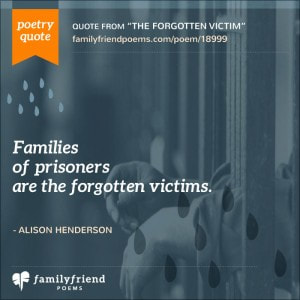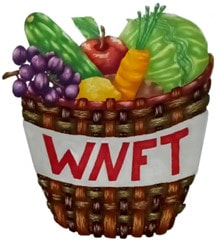 I have a relative who's between a rock and a hard place right now. Her husband is in prison, and bad as that is, it's not as life-changing as losing the income he contributed to their household. She now has 1/3 of the money she's used to, with all the debt. She can't possibly make ends meet. Because she's part of a large and supportive extended family, she's going to be OK. Some people can give her a little money. Others can help get debts forgiven. Some can call and visit and help her through the stress and emotional pain of her situation. What if she wasn't part of our family? She'd be like most people in the world when trouble hits -- broke, hungry, lonely, probably homeless, potentially resorting to some substance or other to dull the pain. It's very nearly the same impact that people suffer when they're shunned by their community. I know groups that believe shunning protects the rest of the group by getting rid of those indulging in bad behavior. One can't think too much about the shun-ee, because the inhumanity of this practice is tough to justify. Isn't that what we're doing, though, as a greater society? Shunning, ostracizing, marginalizing -- call it what you will. There are people we don't approve of, or don't understand, or are afraid of, so we choose to ignore their existence. When I moved to a conservative suburban community after I divorced, believing it to be a good environment for my kids, I was shocked to learn that some neighbors wouldn't allow their children to play with mine, because I was divorced. I don't know what they thought was wrong with that -- was I a troublemaker? Needy? Bad at relationships? A victim who would suck others into my problems? I have no idea, but we definitely weren't part of those people's definition of the neighborhood. Steering clear of people or situations we don't understand is a common practice and has been for hundreds of years. But the more urbanized our culture becomes, the more cost there is to avoidance. We need to know and care about the people near us. Everybody needs a hand once in a while. If we don't care, if we don't participate in the whole spectrum of our society, we're eventually going to have so many broken, hopeless, scarred neighbors that society as a whole will crumble. The few can't support the many. Maybe you're scared. Maybe someone married to a man in prison is uncomfortable for you. Maybe someone who suffered an injury and was over-prescribed pain medication seems weak or irresponsible. It doesn't really matter why people strike us as different. The important thing is that we overcome those differences. We need to talk to the stranger, feed the hungry, warm the un-sheltered. We don't have to put ourselves in danger, but we do have to care. If we cease to care, what are we?
0 Comments
Leave a Reply. |
AuthorSusie Snortum is passionate about improving society's compassion for meeting basic human needs -- food, shelter, clean water, and dignity. Archives
September 2020
Categories |
We appreciate your support!
Hours
|
Telephone
|
Email
|
ADDRESS: 17850 NW Park View Blvd, Portland, OR 97229 United States

 RSS Feed
RSS Feed